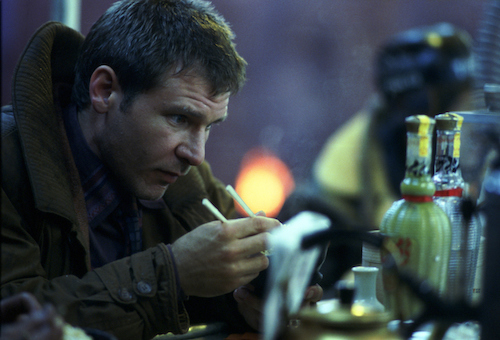
Ridley Scott's pioneering sci-fi film Blade Runner is returning to Cineworld in its Final Cut form.
This is your chance to re-immerse yourself in Scott's memorably dank and dystopian world on the big screen, where every facet of the design and soundscape is set to attain even greater resonance and meaning. The film is screening as part of our Sci-Fi Season and the really good news is tickets are just £5.
Harrison Ford plays the titular 'blade runner' (bounty hunter) Rick Deckard who is tasked with tracking down and eliminating several humanoid robots known as replicants. Headed up by the fearsome Roy Batty (Rutger Hauer), the replicants are in search of the person who made them, which sets in motion a dense philosophical experience that meshes profound spirituality with retro-futurism and film noir.
No matter how many times you've seen Blade Runner, the story behind its creation remains compelling. Before you book your tickets for the Sci-Fi Season screening (you can do so at the end of this post), here are some fascinating facts about the movie.
-
Director Ridley Scott agreed to direct Blade Runner after walking away from the long-gestating adaptation of Dune, which was eventually directed by David Lynch
-
Hampton Fancher wrote the initial adaptation of Philip K. Dick's novel Do Androids Dream of Electric Sheep?, although he later walked away from the production after David Webb Peoples was tasked with rewriting the script
-
The film's title Blade Runner came from a cinema treatment for William S. Burroughs' adaptation of Alan E. Nourse's novel The Bladerunner, which Scott liked and was later optioned by producer Michael Deeley
-
Distrustful of Hollywood, Dick (who died before Blade Runner was released in cinemas) was won over by Peoples' new script draft and a 20-minute special effects showreel
-
Dick told Scott that it was exactly how he envisaged it when he was writing the original novel
-
Harrison Ford was cast after several other actors turned the role down including Dustin Hoffman, Scott's favored choice for the role
-
Other actors considered for the role of Deckard included Clint Eastwood, Sean Connery and Jack Nicholson
-
Rutger Hauer, who played replicant leader Roy Batty, rewrote his character's famous "tears in rain" speech himself and presented the words to Scott on set before filming
-
Hauer later declared Blade Runner as the best film he'd ever worked on
-
Gaff actor Edward James Olmos created the fictional 'Cityspeak' language used by his character in the film by compiling several ethnic languages together
-
The distinctive look of Blade Runner was inspired by multiple sources including Scott's upbringing in industrial Tyneside and the French science fiction graphic novel Métal Hurlant
-
Métal Hurlant artist Jean 'Moebius' Giraud was offered a chance to work on the movie but turned it down in favour of the animated film Les Maîtres du temps, which he later regretted
-
The renowned Douglas Trumbull, who designed the effects in Stanley Kubrick's trailblazing 2001: A Space Odyssey (1968), supervised the effects of Blade Runner
-
Special effects supervisor David Dryer used stills from Fritz Lang's seminal silent sci-fi epic Metropolis when designing Blade Runner's miniature building shots
-
Blade Runner was a famously troubled production with Harrison Ford claiming that Ridley Scott gave more focus to his sets than the actors
-
The grueling production schedule, involving multiple night shoots in rainy environments, also caused fall-outs between Scott and the Hollywood film crew, particularly when Scott expressed annoyance that he couldn't use his regular British team
-
When the American crew found out about this and discovered that the Brits referred to Scott as 'guv'nor', they got t-shirts made that read '"Yes guv'nor, my a**"
-
Vangelis' striking moody synth/jazz score was recorded in London and utilised a host of then-cutting-edge equipment including a Yamaha CS-80
-
The tenor sax solo 'Love Theme' was performed by the noted British saxophonist Dick Morrissey
-
Blade Runner was released on June 25, 1982, at the behest of producer Alan Ludd who declared it his "lucky day" based on the fact that Star Wars and Alien had enjoyed blockbuster openings on that very same day
-
Blade Runner, however, opened to indifferent reviews and poor box office, in part due to the overwhelming success of Steven Spielberg's E.T., which was released in the same window and also consigned John Carpenter's The Thing to box office anonymity
-
Blade Runner was something of an obscure cult item throughout the 1980s until Scott presented his Director's Cut in 1992, which brought the movie renewed exposure and made several profound editorial changes to the initial theatrical cut including the removal of Harrison Ford's stilted narration and the addition of a unicorn dream sequence that suggests Deckard is himself a replicant
-
In total, seven different cuts of Blade Runner are known to exist with Scott declaring 2007's The Final Cut to be the definitive take
-
The Final Cut improves a host of long-standing editorial mistakes including Zora (Joanna Cassidy) crashing through a plate-glass window, which had clumsily and obviously transitioned into a male stuntman in the earlier edits
-
In 2017, director Denis Villeneuve, later to direct Dune and Dune: Part Two, expanded the Blade Runner mythology in his acclaimed sequel Blade Runner 2049, stating: "I wanted the atmosphere to carry the beautiful melancholy that was so powerful in the first movie. I wanted the world to be one of bleakness and gloom but to have sparks of beauty — coming out of technology or humanity."
Click the link below to book your tickets for Blade Runner, which is re-released at Cineworld on February 20th. And if you're in the mood for yet more sci-fi, don't forget that tickets for Dune: Part Two (including premium format IMAX) are now on sale ahead of the film's release on March 1st – you'll find the link beneath the Blade Runner trailer.

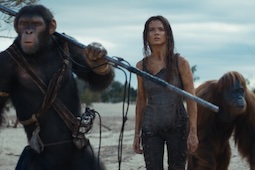
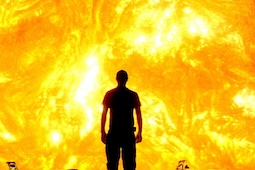
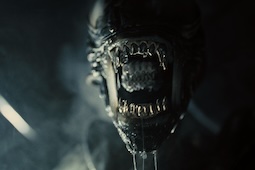
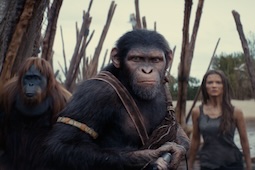
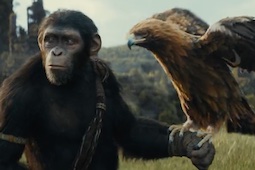

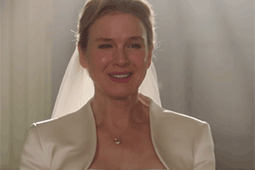
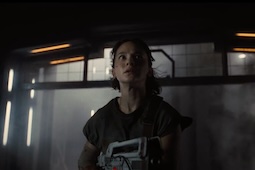

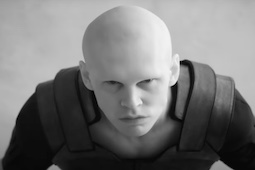



.jpg)
.png)



